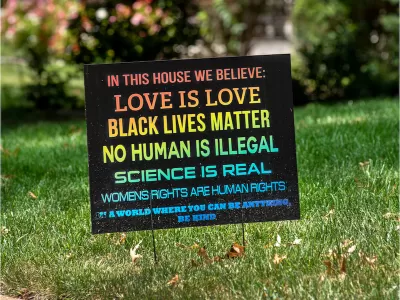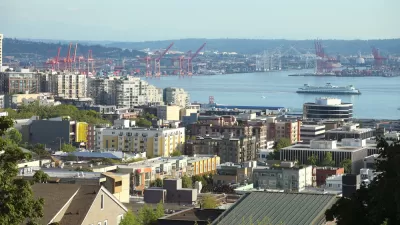More evidence that a common talking point of affordable housing opposition is more fear than fact.

Homeowners and other property owners have a history of opposing proposed affordable housing developments out of concern for their property values. Affordable housing projects will bring undesirable residents, crime, and blight to the neighborhood—according to this common line of thinking—and property values throughout the surrounding neighborhood will drop.
Except there is a growing body of evidence that suggests the common narrative is completely false.
Writing for the Urban Institute, Christina Plerhoples Stacy and Christopher Davis share recent research adds to the evidence for a more welcoming approach to affordable housing. The researchers used Zillow’s assessor and real estate database to estimate the relationship between affordable housing developments sales prices of single-family homes, duplexes, cooperatives, and residential condominiums between 2000 and 2020 in Alexandria, Virginia.
“We find that affordable units in the city of Alexandria are associated with a small but statistically significant increase in property values of 0.09 percent within 1/16 of a mile of a development, on average—a distance comparable to a typical urban block,” write the authors to explain their findings.
The entire report is available at the link below.
For more on the historic evidence of a similar benefit to property values from nearby affordable housing development, see also a Planetizen article about a Trulia study from 2016 and a Shelterforce article from 2012.
FULL STORY: Assessing the Impact of Affordable Housing on Nearby Property Values in Alexandria, Virginia

Alabama: Trump Terminates Settlements for Black Communities Harmed By Raw Sewage
Trump deemed the landmark civil rights agreement “illegal DEI and environmental justice policy.”

Planetizen Federal Action Tracker
A weekly monitor of how Trump’s orders and actions are impacting planners and planning in America.

Why Should We Subsidize Public Transportation?
Many public transit agencies face financial stress due to rising costs, declining fare revenue, and declining subsidies. Transit advocates must provide a strong business case for increasing public transit funding.

Understanding Road Diets
An explainer from Momentum highlights the advantages of reducing vehicle lanes in favor of more bike, transit, and pedestrian infrastructure.

New California Law Regulates Warehouse Pollution
A new law tightens building and emissions regulations for large distribution warehouses to mitigate air pollution and traffic in surrounding communities.

Phoenix Announces Opening Date for Light Rail Extension
The South Central extension will connect South Phoenix to downtown and other major hubs starting on June 7.
Urban Design for Planners 1: Software Tools
This six-course series explores essential urban design concepts using open source software and equips planners with the tools they need to participate fully in the urban design process.
Planning for Universal Design
Learn the tools for implementing Universal Design in planning regulations.
Caltrans
Smith Gee Studio
Institute for Housing and Urban Development Studies (IHS)
City of Grandview
Harvard GSD Executive Education
Toledo-Lucas County Plan Commissions
Salt Lake City
NYU Wagner Graduate School of Public Service





























